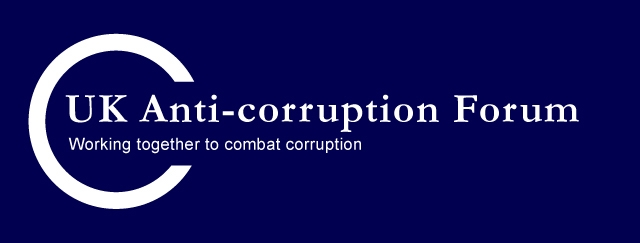Anti-Corruption Resources
The GIACC Resource Centre
The Global Infrastructure Anti-Corruption Centre (GIACC) has published a Resource Centre on which can be located free of charge, online information, advice and tools designed to help organisations and individuals in the public and private sector understand, prevent and deal with corruption.
Since its launch in 2008, the GIACC Resource Centre has been visited online by over 750,000 users from over 190 countries.
The Resource Centre includes the following:
Corruption information: Analysis of what is corruption; why corruption occurs; how corruption occurs (with hypothetical examples); how corruption is concealed; why avoid corruption; liability for corruption; and cost of corruption.
Anti-corruption education and training: Online Anti-Corruption Training Module: “Avoiding Corruption”; University Anti-Corruption Course: “Preventing Corruption on Infrastructure Projects; Anti-corruption training workshops;
Anti-corruption programmes for organisations; governments; funders; project owners; and professional institutions.
The Project Anti-Corruption System (PACS): PACS is a management system designed to assist in the prevention and detection of corruption on infrastructure projects.
The Commonwealth Anti-Corruption Benchmarks: The Benchmarks help governments and public sector organisations assess their anti-corruption laws and procedures against international good practice, and implement appropriate improvements.
Anti-corruption measures: Specific anti-corruption measures which an organisation can implement, either separately, or as part of an anti-corruption programme.
Dealing with corruption: Advice on how organisations; individuals; and the public can deal with corrupt situations.
Information on anti-corruption conventions; forums; indices and surveys; and initiatives.
The above resources can be accessed both through the above links and by visiting the Resource Centre.
ISO 37001
What is ISO 37001?
ISO 37001 is an anti-bribery management system (ABMS) standard for organizations. It was published in October 2016. It specifies various anti-bribery policies and procedures which an organization should implement to assist it in preventing bribery, and in identifying and dealing with any bribery which does occur.
It is published by the International Organization for Standardization (ISO), which is an independent, non-governmental international organization which develops and publishes International Standards. It is based in Geneva, and is made up of the national standards bodies from 162 member countries.
Who can use ISO 37001
ISO 37001 is designed to be used by small, medium and large organizations in the public, private and voluntary sectors. It is designed to be a flexible tool, which can be adapted according to the size and nature of the organization and the bribery risk it faces.
In which countries can ISO 37001 be used?
ISO 37001 can be used in any country. It is designed to aid compliance by the organization both with international good practice and with the relevant anti-bribery legal requirements in all countries in which the organization operates.
It is has been implemented by thousands of organizations from over 70 countries.
How was ISO 37001 developed?
ISO 37001 was developed by a Project Committee established by ISO in 2013. The committee comprised experts from 59 participating and observing countries
Can a third party certify the organization’s compliance with ISO 37001?
Yes. An organization’s compliance with ISO 37001 can be certified by an independent third party. This provides additional assurance that the organization is compliant. The risk of corrupt or negligent certification is reduced by the use of major, well known, accredited national or international certifiers.
How do I obtain a copy of ISO 37001?
Any organization which wishes to use ISO 37001 must first purchase a copy, as it is a copyrighted product. It can be purchased from ISO’s web-site for 158 Swiss Francs. Many national standards agencies also sell it on their web-sites.
How can I get further information on ISO 37001
For a detailed explanation of the purpose and content of ISO 37001, see ISO 37001.
